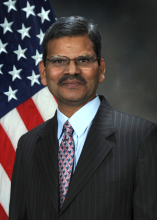CANCELED - CBE Seminar: Multi-Organ Model Systems for Elucidating Mechanism of Operational Stressors

Professor
Pharmacology & Toxicology
Wright State University
Senior Toxicologist, U.S. Air Force Research Laboratory
Non-UCI people, please use this registration link: https://forms.gle/61iLZuA5nsximFGN8
Abstract: Advancements in human multi-organ model system development have allowed simplification of organ complexity while maintaining physiological accuracy, making it a good platform to study the mechanisms and impacts of various stressors on cellular function. Stressors found in airmen operational environments (e.g., extreme physical exertion, high temperatures, excessive G-force, pressure changes, low oxygen environments, or exposure to aerosolized chemical or particle contaminants) can lead to changes on a molecular and biochemical level within the body, impacting cognition, vision, hearing, fatigue and potentially hindering performance. Currently, these key research areas are being investigated: 1. Reconstruct the lung surfactant model in vitro using alveolar cells capable of producing lung surfactant to determine the risk levels of multiple stress scenarios to predict and prevent decay in pulmonary function; 2. Measure changes in mitochondrial structure and function in response to different operational stressors to develop a physiological biometric profile to predict metabolic changes, prevent performance degradation and increase resiliency; 3. Develop a complex 3D ocular surface model to noninvasively examine molecular bio-signatures produced in tear fluid in response to different stress conditions; 4. Study cellular communication through weak photon emission endogenously produced by mammalian cells that might serve as an indicator of stress that can be detected noninvasively. 5. Utilize state-of-the-art spectroscopy to increase the “biophoton” signal to characterize the emission properties and identify the reaction mechanism that produces the emission endogenously.
Bio: Saber Hussain is a senior toxicologist at the Airmen Bioscience Division of Wright-Patterson Air Force Base and a full affiliated professor of pharmacology and toxicology at Wright State School of Medicine in Dayton, Ohio. Hussain began his scientific career in 1987 as a toxicology research fellow at the highly regarded Indian Institute of Chemical Technology (IICT) and received his doctorate degree in 1991. Here, his novel exploration of heavy metal biotransfer between different proteins in complex biological environment led to a series of prestigious research fellowships in Italy, Switzerland and the U.S. Hussain joined the Air Force Research Laboratory at Wright-Patterson AFB in 1999. Hussain’s current research areas are on the development of a multi-organ system model that will identify the impact of stressors on pilots during a mission. Stressors can include physical exertion, high temperatures, G-forces, pressure changes, low oxygen levels and exposure to chemical contaminants. These stressors can lead to alterations on a molecular and biochemical level in the body, impacting cognition, vision, hearing, fatigue and potentially hindering performance. Hussain's specific research areas are related to stress-induced mitochondrial health and organ-level effects, quantum dynamics of electron transfer in mitochondria, and biological and physical interaction of nanoscale particles with lung surfactant (LS). He has mentored over 100 students over the last 20 years, many of whom have become scientists/professors, serving the AF in military capacity, or as civilians. His research has resulted in author/co-authorship of 150 peer-reviewed publications, several book chapters and more than 200 technical abstracts. He is an editorial member of several toxicology journals. Hussain is a Fellow of the Academy of Toxicological Sciences and a Fellow of the U.S. Air Force Research Laboratory. He serves as an expert reviewer for several government and private organizations. Hussain has been the recipient of numerous scientific awards and has established a strong collaborative network with over 25 national and international organizations.
Host: Professor Herdeline Ardoña and Professor Quinton Smith
Share
Upcoming Events
-
MSE 298 Seminar: Mechano-Electrochemical Phenomena at Ceramic Electrolyte Interfaces
-
MSE 298 Seminar: Innovation In Materials Science - An Industrial R&D Perspective
-
MSE 298 Seminar: Understanding the Impact of Grain Boundary Inclination on Grain Growth Using Modeling and Simulation and Experiments
-
EECS Seminar: Mixed Conductors for Bioelectronics
-
MSE 298 Seminar: Ionic Correlations in Polymer Nanostructures - From Block Copolymers to End-Charged Blends
